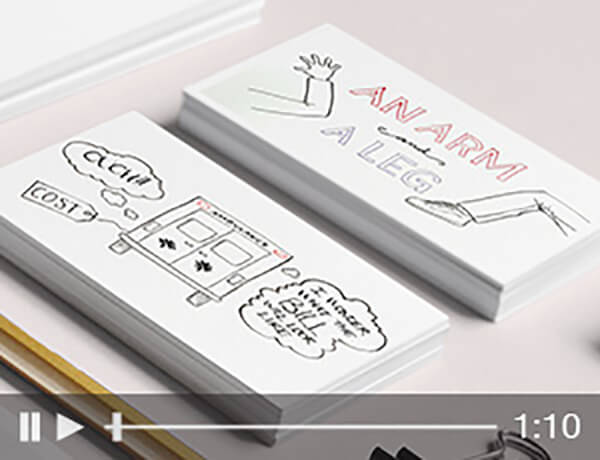6 Steps to Rewire the Mind-Money Connection
Every new year brings promise, but sometimes this annual ritual can feel more like Groundhog Day. You start the year determined to keep your resolutions, but before too long, you default back to bad habits. For many people, this is especially true regarding old behavior patterns with money.
People develop their relationship to money from a young age, and it’s reinforced by family dynamics. By the time they become adults, it can feel permanent. Yet, it is anything but. Increasingly, psychologists are looking to the brain’s neuroplasticity as the pathway to change patterned behavior.1 Neuroplasticity is “the ability of the brain to modify its connections or rewire itself.”2 In other words, anyone can reshape mental (and physical) habits towards money.
Identify Your Triggers
Let’s say you’ve developed a shopping vice. You’re spending too much money on things that you don’t need. One approach to curb this is to examine the triggers that lead to a shopping binge. Do you shop before a big date or a job interview to calm your nerves? Is there a favorite store on the way to work?
Stop the Physical Repetition
Habits are reinforced by repetition. To break a habit, you have to stop doing it over and over. When you feel prompted to shop by a familiar trigger, it’s time to change your next action in the chain of events. If the store on the way to work pulls like a magnet, find a new route. If the problem is compulsive online shopping, add website blockers to your browser to bar the sites that eat up time and money.
Consider a Spending Fast
Another way to stop bad financial habits is to go cold turkey with a spending fast. For instance, perhaps you always treat your friends to dinner, whether you can afford it or not. For a set period of time, resist the temptation to grab the check when it lands on the table (especially if it’s going on a credit card). Bear in mind that studies show it takes at least sixty-six days for a new habit to become automatic.3 So if you fall off that horse, keep getting back on it!
Practice Mindfulness
Acting on old behavior is usually preceded by old, negative thinking. Often people are hardly conscious of negative thoughts; they simply act on them without examination. By practicing mindfulness, however, we can avoid the effect of mental autopilot.
Mindfulness involves bringing your attention to your immediate experiences and helps us examine anxious thoughts more rationally.4 If you’re feeling anxious about an upcoming date, for example, perhaps you’re at risk of splurging on new clothes. But if you look at this thought mindfully, perhaps you’ll see you have plenty to wear already. Or better yet, you may imagine yourself enjoying the date, regardless of what you’re wearing.
Envision the Bigger Goal
Lastly, take the time to write out what you want. Make a plan and add in the financial numbers that will make it possible. Then add visual reminders, like photos in everyday places, to help you see the goal regularly. So, if you want a new home, change the wallpaper on your phone to a photo of a house you love. Or, if you have a once-in-a-lifetime vacation spot on your list, start a travel board devoted to it on Pinterest. If you want a salary bump, put the target number on a Post-it on your bathroom mirror. You get the idea.
Work With a Professional
Financial representatives are like coaches for your money. They advocate starting with goals and creating a plan, often accompanied by helpful techniques. When you have a plan, know the best practices to follow and have someone to check in with, it’s that much easier to break those old habits and form new ones. To find out more about the connection between mind and money from experienced financial professionals, check out the podcast Standard Deviations, which views personal finance through a psychological lens.
However you decide to rewire that brain, remember it takes time, practice and even a little experimentation to undo years of habit. Nobody gets it right on the first shot, and money can be particularly tricky, but a lot of people have rewired their financial thinking and behaviors with just a little extra optimism, persistence and encouragement. You got this.
Brought to you by The Guardian Network © 2019. The Guardian Life Insurance Company of America®, New York, NY
2019-72181 Exp 1/21
SOURCES:
1Better Than Before: Powerful Neuroplasticity Principles to Rewire the Brain & Break Bad Habits, Huffington Post, March 24, 2017
2What is Brain Plasticity and Why Is It So Important? The Conversation, April 4, 2016
3The Habit Replacement Loop, Psychology Today, May 14, 2017
4Mindfulness Training as a Clinical Intervention: A Conceptual and Empirical Review, Clinical Psychology: Science and Practice, Summer 2003.



